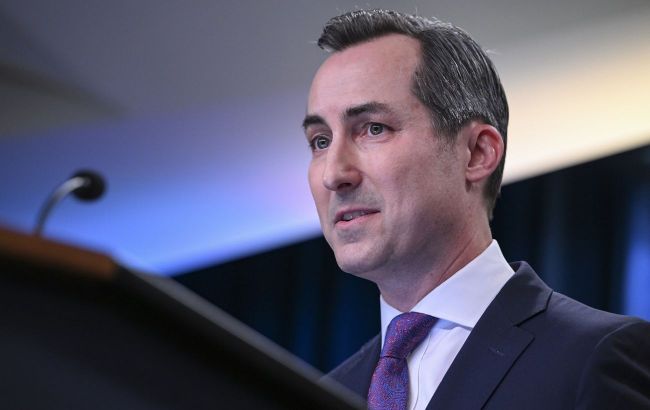US readies to impose sanctions against Georgian authorities, State Department says
 Photo: Matthew Miller, US State Department spokesperson (Getty Images)
Photo: Matthew Miller, US State Department spokesperson (Getty Images)
The US government may impose sanctions on Georgian officials. However, the State Department has not disclosed details about how these sanctions will be prepared, according to US State Department spokesperson Matthew Miller.
According to the State Department representative, the US is ready to use any tools against the Georgian government, including sanctions.
This action is prompted by the Georgian authorities’ attempts to disperse mass protests. Controversial government decisions regarding the suspension of Eurointegration sparked the protests. Issues surrounding the parliamentary elections, which were marred by violations, also contributed to the unrest.
Miller suggested that such sanctions could be imposed under the current administration of President Joe Biden.
“We are going to use all the tools at our disposal to hold Georgia accountable for those steps, including rolling out new sanctions,” said the US official.
However, Miller did not specify who these sanctions would target or what specific restrictions they might include.
Protests in Georgia and sanctions
As a reminder, in the parliamentary elections in Georgia at the end of October, the pro-Russian party Georgian Dream took first place, according to the country’s Central Election Commission. International observers recorded a number of violations during the voting and election process. This led to mass protests.
In Georgia, protesters are demanding new elections and the release of all political prisoners. Meanwhile, security forces in Georgia are using gas and water cannons against the demonstrators.
Recently, Ukraine imposed sanctions on Georgia’s government. Additionally, President Volodymyr Zelenskyy urged Western countries to follow suit.
On December 9, the European Union Ambassador to Georgia, Paweł Herczyński, stated that the EU is preparing sanctions against Georgia’s government. However, for these sanctions to come into effect, consensus among the bloc's 27 member states will be required.

